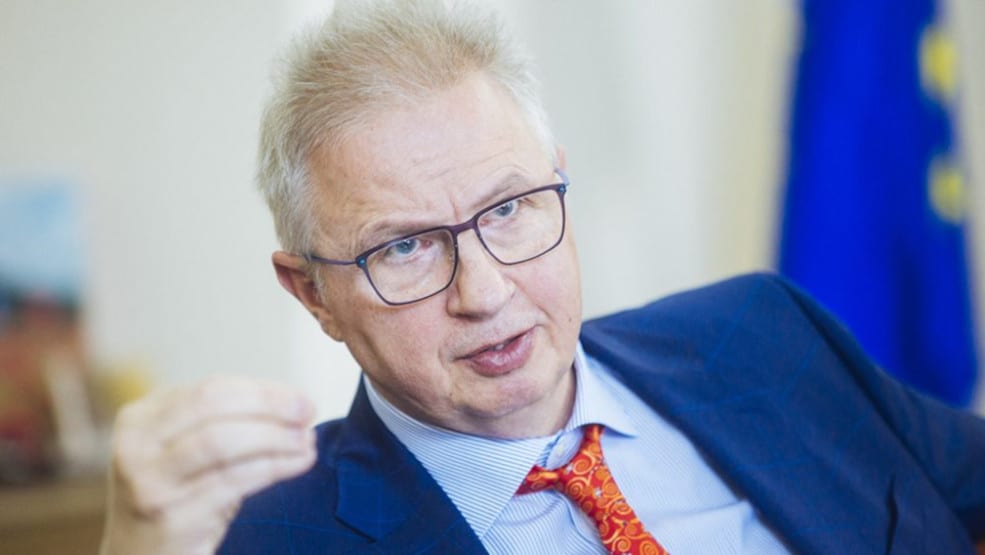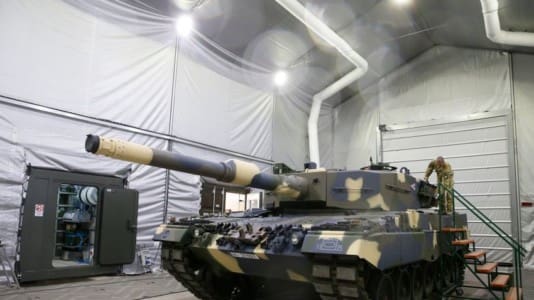The Christmas season not only reinforces just how important Christianity is to Europeans as individuals, but on a broader level, it also highlights that the entire civilizational foundation of the continent is based on the Christian faith, writes Hungarian MEP László Trócsányi. In explaining the vital role Christianity has played in the development of European history and its values, he warns that if Europe gives upon the religion of its forefathers, the entire continent’s civilization could be erased.
“If Europe turns her back on her Christian heritage, the continent may survive in a geographical sense, but the civilization that has preserved and elevated us for millennia will be lost forever,” he wrote.
Trócsányi notes how embedded Christianity is in the European tradition, and how it gave the continent direction despite hundreds of years of war, famine, disease, and political upheaval.
“Indeed, Europe and Christianity are inextricably linked by many aspects. Throughout Europe, the mystery of Jesus Christ, the message of Christianity, the Son of God, who became a man, died and was resurrected for us, has been inherited from generation to generation for thousands of years. Christianity gave Europe a vision,” he writes.
The Hungarian MEP writes that Christmas serves as a time of reflection and meditation, which allows Europeans “time to contemplate our direct and more distant roots: our family, our communities, our country and the gifts of Christianity.”
Even for those European non-believers, they cannot escape that Christianity has had an indelible impact on Europe, shaping the continent’s culture, traditions, philosophy, and peoples.
Trócsányi refers back to the words of former Hungarian Prime Minister József Antall, who served during the country’s transition away from communism and is quoted as saying: “Even an atheist is a Christian in Europe.”
However, Christianity is more than just a religion and article of faith, it has had real world implications on Europe and the broader world that stretch back thousands of years.
It was instrumental in moving Europeans away from the pagan tradition, and toward the “defining idea of Christian ethics is that God created all men in His own image.”
This novel and humanistic concept led to deep changes in the Roman Empire, including the banning of bloody circus games and gladitorial combat that were commonplace in the ancient world, along with restrictions on torture and killing of slaves, and reducing child trafficking. It also led to the end of pagan rituals, such as the immolation of prisoners in honor of the Roman emperor.
Christianity not only became the primary religion of Europe, but also became the “dominant way of thinking in medieval Europe.” Hungary, among other states, played a vital role in its development, the MEP writes.
“By accepting this way of life, King St. Stephen gained admission to Europe and managed to lay down the foundation for independent Hungarian statehood in the European community of Christian states, which God will gather together at the end of time. Furthermore, in the spirit of religious tolerance, the Parliament of Torda was the first in Europe to proclaim religious freedom among established Christian denominations and can thus rightly claim to be among the achievements of the Hungarian historical constitution.”
Trócsány also argues that Christianity imparted a key concept to Europeans, which is that of free well.
“While Christian ethics and political thought created a theoretical system, the mystery of the Christian faith established a unique vision and civilization in Europe. God not only created man in His own image, but gave him the gift of free will. This provides immense freedom, which, however, comes with responsibility,” writes Trócsányi.
Christianity proved such a powerful force for mankind that it turnied the cross, which was a symbol of death and despair, into a “symbol of resurrection, triumph and the Kingdom of God. Europe was elevated by this vision, and with it, Europe could become the ‘focal point of civilization’.”
According to Trócsányi, Hungary made vigorous efforts to defend this vision and maintain its independence. He goes on to list pivotal battles against the Ottoman Empire and the march of Islam into Europe, such as at Muhi, Nándorfehérvár, Szigetvár, Eger, and Budapest in 1541, but he also points to the battle against communism in 1956 and cites the words of Pope Pius XII, who in 1956 wrote, “the blood of the Hungarian people cries out to God.”
Hungary was not the only nation that found salvation from authoritarian communist rule, but belonged to a family of Central and Eastern European nations that turned to faith to overcome what appeared to be an insurmountable foe.
“The Christian faith played a decisive role in maintaining the desire and will of the Polish, Hungarian and other Central European nations that longed to restore freedom during the oppression of Soviet communism,” writes Trócsányi.
The Hungarian MEP describes how European integration found its most vocal and influential backers among Christians of deep conviction, including Konrad Adenauer, Robert Schuman and Alcide De Gasperie. These men recognized that a Europe shattered by the Second World War could only face the spreading Soviet threat through the preservation of its age-old values with a basis in Christian faith.
Yet, Europe is turning away from this vision, according to Trócsányi. He writes:
“In light of this, it saddens me that European political life is once again drifting further and further away from its Christian foundation. Listening to the debates in the European Parliament, I often feel as if I am attending a service without prayer and where the European Union itself is becoming a religion.
Part of the ceremony is dedicated to the idea that the continuous construction and deepening of the European Union, along with the policy of integration, cannot be questioned. It has become a dogma that one must believe in without reservation. The key concept of the EU has become the non-existent “European citizen” who, overthrowing Christian teaching on the relationship between the individual and the community, displaces and excludes any local or national identity or community.”
Trócsányi argues that the European Union itself is “emerging as an ideology. And the Central European states that have recently experienced totalitarian dictatorships are now warning the rest of Europe that this path is leading us astray.”
While many in Europe’s political establishment are turning away from the continent’s Christian roots, the four freedoms and the economic integration that are cornerstones of European integration, they are in the end only tools and “cannot provide a vision for Europe nor hold her together.”





